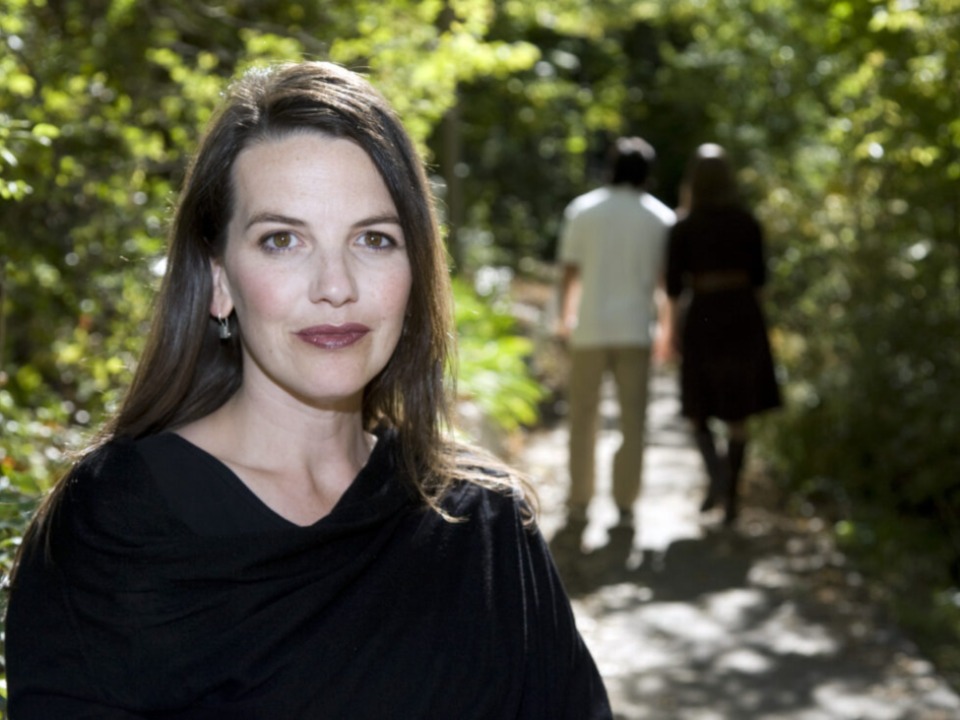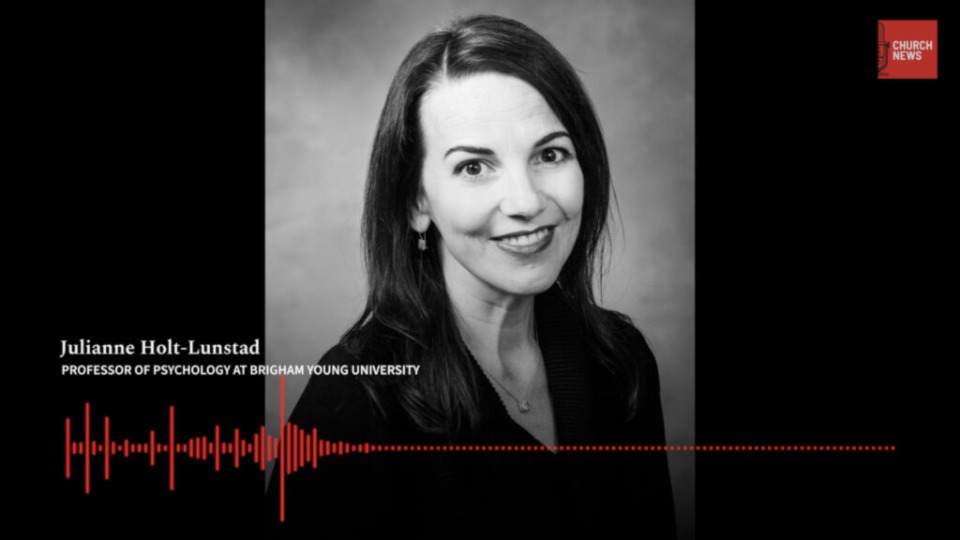
connection-1.jpeg
Julianne Holt-Lunstad, a BYU professor of psychology and neuroscience, has studied ways to fight loneliness and increase social connection. Photo by Mark A. Philbrick, BYU Photo. Courtesy of Church News.All rights reserved.
This story appears here courtesy of TheChurchNews.com. It is not for use by other media.
By Megan McKeller, Church News
Though complex and multifaceted, social connection impacts nearly every sector of society, said Julianne Holt-Lunstad, a Brigham Young University professor of psychology and neuroscience.
“We need each other,” she said. “I’ve learned … how divinely essential our relationships are to every aspect of our life.”
Holt-Lunstad has spent two decades researching long-term health effects of social connection. She recently joined the Church News podcast to discuss the importance of human connection and share ways to fight loneliness individually and collectively.
In 2015, she analyzed data from 148 different studies worldwide and found that a lack of connection “carried a risk similar to smoking up to 15 cigarettes per day,” she said. “It also was comparable or exceeded the risk associated with excessive alcohol consumption, physical inactivity, obesity and air pollution.”
Relationships affect health in multiple ways, according to Holt-Lunstad. For instance, family members or close friends will “look out for our well-being” by encouraging healthy behaviors like getting enough sleep or seeing a doctor.
Social connections also have a biological impact: a lack of proximity to trusted individuals can trigger a heightened physiological state of alert and threat, which then can lead to increases in heart rate and blood pressure, thus circulating stress hormones or inflammation. When inflammation is chronically heightened, it “can put us at increased risk for a number of chronic illnesses,” Holt-Lunstad said, “but also can increase your risk for mental health issues such as depression and cognitive health issues such as mild cognitive impairment, dementia and Alzheimer’s disease.”
As the COVID-19 pandemic has left millions around the globe isolated and without typical social interactions, researchers have examined to what extent this isolation led to increases in loneliness. An analysis across 32 studies found increases not only in the severity of loneliness but also in the number of people who reported being lonely. Research has also found that some people are more vulnerable than others. “This is really important also for understanding what factors contribute to who are resilient and how we can use this information … to help people.”
1. Support others
“Providing support to others, in some cases, can have an even bigger benefit (than receiving support), which I think might be surprising to some people,” Holt-Lunstad said. “But what it suggests is that one of the best ways to help ourselves is by helping others.”

She believes that helping others is beneficial because of the sense of meaning and purpose it provides and because it can lead to greater social bonding and stronger relationships.
2. Be genuine
When reaching out to others through ministering or any other relationship, it’s crucial to be genuine instead of simply going through the motions. Building bonds of trust happens “through time, sincerity and responsiveness,” Holt-Lunstad said. “The extent to which we effectively do this will depend, in some regard, on how we ourselves contribute to that relationship.”
3. Find the right group
“You’ve got to find the right group where you feel like you belong,” she said. “Just like if you compare being physically active to being socially active, we know that being physically active is important for your health, but some people prefer walking to swimming, … and so we also need to think about what matches with individual’s means, desires, as well as barriers that might exist.”
4. Express gratitude
What President Russell M. Nelson called “the healing power of gratitude” in November 2020 is another proven way to combat loneliness, Holt-Lunstad said. Expressing gratitude and appreciation increases bonding and strengthens connections, which leads to lower levels of loneliness.
5. Do small acts of kindness
Holt-Lunstad and her colleagues performed a study in which they randomly asked people to do small acts of kindness for others. They found that those who performed the acts of kindness showed significant reductions in loneliness over four weeks.
6. Prioritize meaningful and positive contact and relationships
Having more and better relationships is protective while having few and poor-quality relationships can be detrimental. “What we want to do is not only increase our social contacts but make sure that that contact is positive, quality, and (with) deep, meaningful relationships in order to really have the positive kinds of benefits,” she said.
Copyright 2021 Deseret News Publishing Company